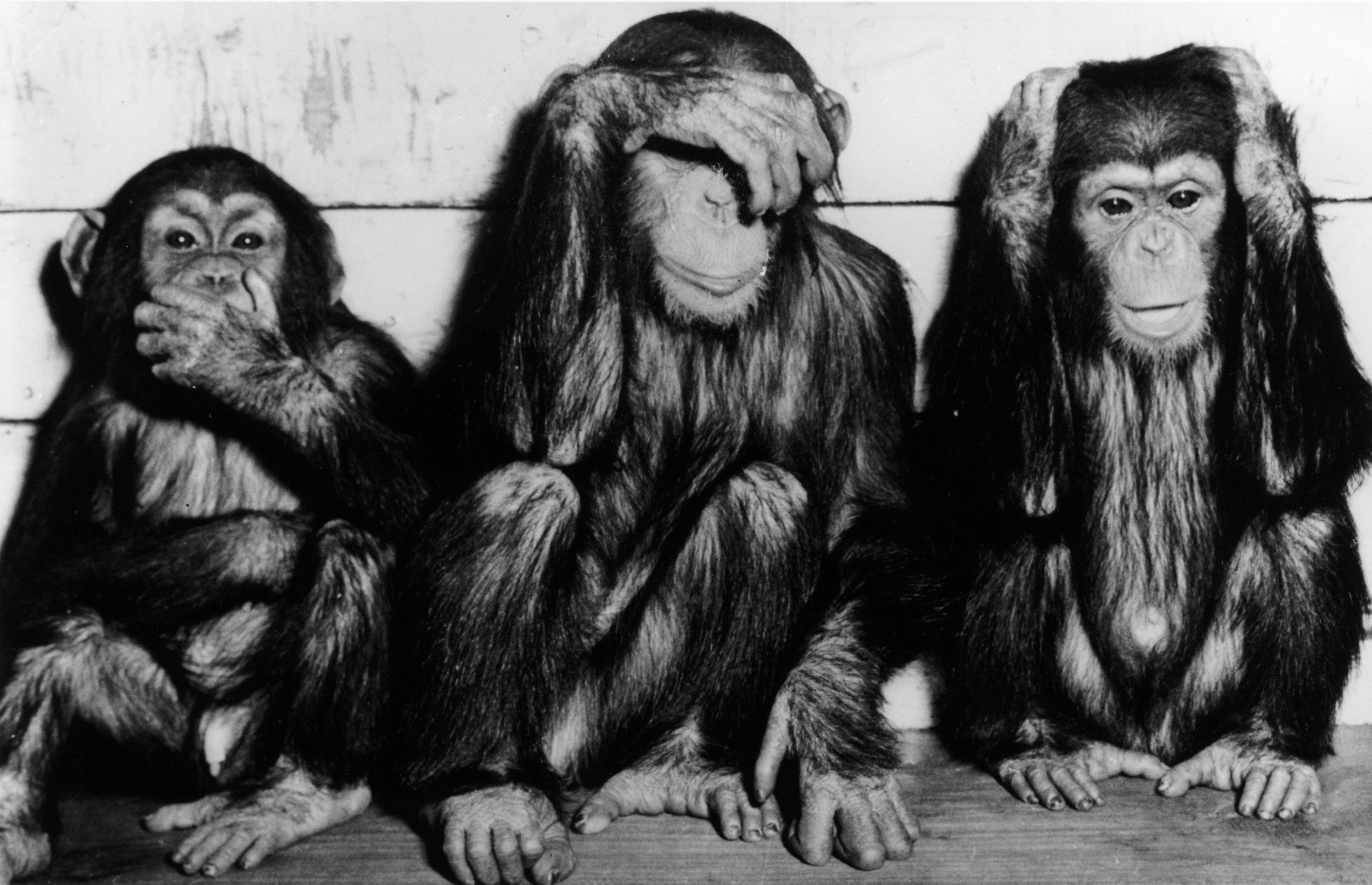
Contrary to the iconic image of the three monkeys, "speak no evil, hear no evil, see no evil," chimpanzees display elaborate behaviors to broadcast and process vocalized warnings of danger, according to new research in Science Advances.
Catherine Crockford and her team at the Max Planck Institute for Evolutionary Anthropology conducted a set of experiments that suggest chimpanzees take their peers' visual perspective into account when trying to alert them to danger. While observing wild chimps in the Budongo Forest in Uganda, the researchers planted fake snakes near the animals and then filmed the chimps' reactions. When the chimpanzees found the dummy snakes, a third of the time they marked the location of the danger by darting their eyes between their primate comrades and the seemingly deadly threat on the ground.
For the second set of experiments, the researchers created two scenarios using the fake snakes. In the first scenario, they set up a recording of a chimpanzee hooting call that indicated danger. In the second, they played a recording of a chimpanzee conveying ignorance of the snake in the grass.
In that second scenario—where real-life chimps were led to believe the coast was clear thanks to the recording—the chimps indicated the "newfound" danger to others both through hooting and through indicating with body language, as the researchers first observed in the first experiment.
But why do we care?
The big takeaway is that the ways chimps think about one another and their social world may be more complex than previously thought. It's been reported in the past that chimps can sometimes be altruistic, but the fact that chimpanzees can moderate their expression of how dangerous a situation is or is not based off their belief of others' awareness of that danger might reflect a more complex reality than previously thought.
Uncommon Knowledge
Newsweek is committed to challenging conventional wisdom and finding connections in the search for common ground.
Newsweek is committed to challenging conventional wisdom and finding connections in the search for common ground.
About the writer
Joseph Frankel is a science and health writer at Newsweek. He has previously worked for The Atlantic and WNYC.
To read how Newsweek uses AI as a newsroom tool, Click here.








